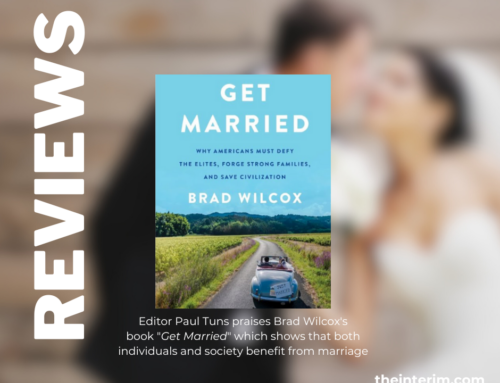 The Dadly Virtues: Adventures from the Worst Job You’ll Ever Love edited by Jonathan V. Last (Templeton, $31.50, 180 page)
The Dadly Virtues: Adventures from the Worst Job You’ll Ever Love edited by Jonathan V. Last (Templeton, $31.50, 180 page)
Last year, Jonathan V. Last edited a wonderful volume, The Seven Deadly Virtues: 18 Conservative Writers on the Virtuous Life. In his most recent collection, 17 conservative writers, reflect on what it means to be a father and advise on how to do it right.
Last says in his introduction that “the primary effect of children is that they take things from you”: sleep, time, sanity, money, and more. This is “an observation, not a complaint.” Children are like the aging process, Last observes, forcing us to let go “of the ancillary parts of your existence” so that only the “elemental core” remains.
For Last, and many of the contributors, being a good father is directly tied to manliness, rooted in chivalric values, and that raising good young men requires that children have good older men in their lives. Buried in a humorous essay “in praise of adventure” and smart risk-taking, by Tucker Carlson of the Daily Caller, is the message that children learn by observing not listening, so the best thing fathers can be is a good example, a theme to which many of contributors return. (It is easy to miss in the story of the Carlson family creating a potato canon from which they fire Barbies.)
The whole range of child-rearing is covered from changing diapers to “surviving school” to sending the kids off to college and dealing with the empty nest to grandparenting. There are three essays on “the talk” parents should have about sex, dating, and marriage. Hollywood writer Rob Long offers an amusing anecdote on marriage, saying it is like listening to one song for the rest of your life “but it’s your favourite song, so it’s okay.” That may seem a little trivializing to some readers or too flip, but Long, despite being single, takes marriage seriously and suggests ways to impart that seriousness to adolescents.
Michael Graham talks about the double-standards we have for our sons and daughters when it comes to dating and sex. He rightly says that ultimately we want the same thing for them which is to “date and wait” which Graham insists, “isn’t about a mystical obsession with the concept of virginity” but the time-tested and social science-proven fact that “kids who delay the start of sexual activity and avoid out-of-wedlock pregnancy wind up with better outcomes in just about every area of life.” Graham avoids moralizing, but there is a moral there: “don’t’ throw in the towel, no matter how much the culture wants you to.”
The comedian and actor Larry Miller is not afraid of moralizing. He says parents make the mistake of letting their children find religion on their own. Returning to example being the best teacher, he advises, “showing your children what you look like with prayer on your lips and building a home that reflects your beliefs are very important things to do. This is how we teach.” He reminds us that “every place is good for a prayer, and everything good is worth a prayer.”
There is plenty of good advice: give your children siblings (Stephen F. Hayes), teach your children compassion through pets (Jonah Goldberg), and the importance of shared memories (James Lileks). But perhaps the most poignant line comes from the humour writer P.J. O’Rourke in the opening essay: “Fatherhood explains love to men.” That returns to Last’s point about parental sacrifice and the observation of the novelist Peter de Vries (who, unfortunately, is not quoted in the volume): adults do not create children, children create adults. Fathers do not only have a vital role in their children’s lives, but children help reinforce the necessity of manliness among fathers as good role models and providers of life’s most important lessons.
Paul Tuns is editor of The Interim and, more importantly, the father of six children.




